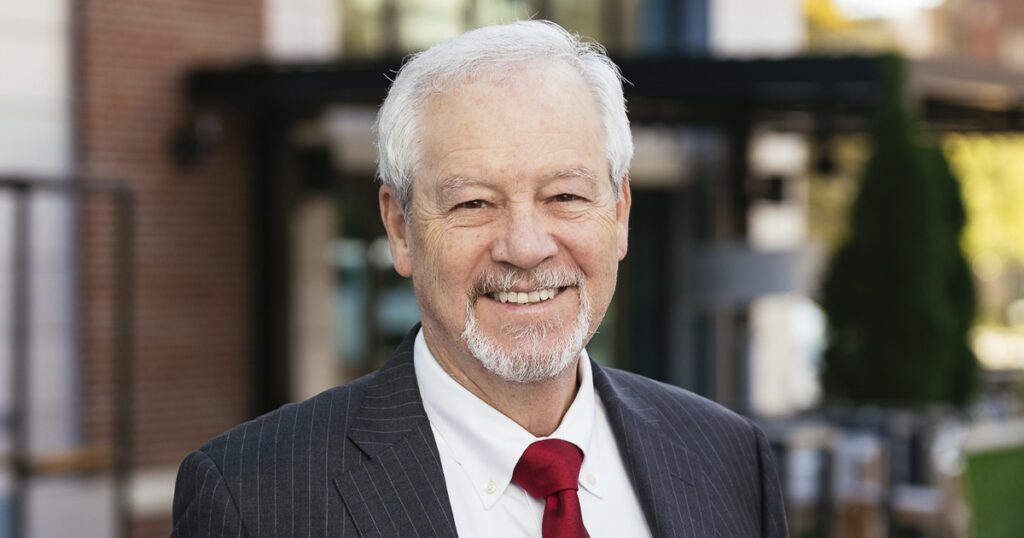International Day of Friendship, also known as World Friendship Day, is observed annually on July 30th. The day originated in the 1930s as a marketing gimmick for Hallmark, and later celebrated sporadically around the world until the United Nations officially designated the day by proclamation in 2011. In its proclamation, the UN expressed hope that the day would inspire peace and mutual respect among cultures around the globe.
In the spirit of International Friendship Day, I reached out to the current president of the Carolinas Chinese Chamber of Commerce and long-time friend of the firm, Michael Wang, to learn more about the Chamber’s work and to discuss the importance of cross-cultural connections. With the pandemic prompting fear and violence around the world against people of Asian and Pacific Islander descent and the growing tension between the two nations, conversations like these seem long overdue.
Anti-Asian racism is not new, so the recent community pleas to quell the rise in anti-Asian sentiment and anti-Asian violence during the pandemic simply brought the issue back to the forefront. It is part of the larger conversation about racism in America and this year of “racial reckoning.” The outcry also comes with a familiar refrain; we are part of America, too.
When the pandemic practically shut down the United States economy, businesses connected to the AAPI community immediately stepped up to help. Here, in the Carolinas, one of the organizations answering that early call was the Carolinas Chinese Chamber of Commerce. According to Mr. Wang, Asian businesses have experienced a significant and disproportionate economic impact because of misconceptions associated with Covid-19. Despite this adverse impact, the Chamber holds fast to the proposition expressed by Mr. Wang that “we all succeed together” and provided education and support to both member and nonmember small business owners as they navigated the challenges of the past year. The Chamber also used its network and resources to secure PPE for more than 60 medical groups to distribute to their front-line workers throughout North and South Carolina and worked with more than 20 organizations across multiple cities in the Carolinas to provide food and other necessities to the most vulnerable. It continues to help, even as its members ranked among the hardest hit by the economic effects of the pandemic, and remains steadfast in its mission to build bridges and positive relationships between its members and the communities in which they live, work, and invest.
Connection; Communication; Collaboration; and Compassion. These are the Carolinas Chinese Chamber of Commerce’s four core values and are readily apparent in its work.
In its ten years of existence, the Chamber has been integrally involved in facilitating significant investments in South Carolina and North Carolina. Those investments resulted from the Chamber’s intentional focus on its core values to establish trust and respect. The Chamber has implemented a plan to fortify the connections between its members and the larger community as well as between China and the United States generally. The Chamber is committed to not only expanding business relationships but also encouraging a sense of mutual understanding and appreciation. The Chamber understands that a fundamental key to connection is communication. In that regard, the Chamber provides a platform to improve communication amongst its members and beyond through economic, cultural, and educational exchanges in China and the United States. In furtherance of this work, the Chamber seeks out opportunities for cross-cultural collaboration to advance the collective success of its members and the communities they serve. But the heart of the work of the Chamber may be its vow to act with compassion by reaching out to support other organizations and individuals in need, particularly at the height of the pandemic.
The increase in Anti-Asian sentiment during the pandemic highlights the importance of inclusion, the dangers of “othering,” and the value of in creating safe communities for everyone. Mr. Wang hopes the Chamber can foster “love over hate” and a sense of “community over division.”
In response to the increased anti-Asian violence tied to the pandemic, Congress passed the COVID-19 Hate Crimes Act and President Biden signed it into law on May 20, 2021. The Act, which was passed with overwhelming and bipartisan support, provides for expedited review of potential hate crimes related to COVID-19 by the Department of Justice and requires the attorney general to work with state and local law enforcement agencies to establish better mechanisms for reporting these types of incidents. The Act also supports community-based work to raise awareness of these hate crimes, defined as violent crime motivated by: 1) the actual or perceived characteristics or race of any person; and 2) the actual or perceived relationship of COVID-19 to the person’s characteristics or race.
President Biden hailed the law as a stand against “the ugly poison [of racism] that has long haunted and plagued our nation.” In her comments on the Act, Vice President Harris noted that she has “seen how hate can pervade our communities” and how it “can impede our progress.” Some agree that this legislation is a step in the right direction, others have concerns that it may be an impediment to more meaningful progress. While Congress did acknowledge the existence of concerns of the Asian, Asian American, and Pacific Islander community by passing the legislation, many are not convinced the actual substance of the Act constitutes any meaningful response that will affect any meaningful change. Others see the passage of the Act as an important step forward because it provides a much-needed declaration from our leaders validating the experiences of the AAPI community and affirmatively disavows the violence perpetrated against those identifying as part of the AAPI community. This is an important step to moving forward with the additional work that must be done.
As we celebrate this International Day of Friendship, it is important for us to recognize the value of coming together to listen and learn about cultures different from our own. It is also important for us to reflect on the many ways in which we are the same. As author Maxine Hong Kingston said, “In a time of destruction, create something.” The Carolinas Chinese Chamber of Commerce is choosing to create relationships. What are you creating?






